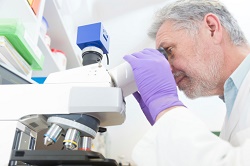Pavilion Publishing and Media Ltd
Blue Sky Offices Shoreham, 25 Cecil Pashley Way, Shoreham-by-Sea, West Sussex, BN43 5FF, UNITED KINGDOM
 Cancer Research has announced a £4 million investment to expand the UK’s first ever national study collecting blood and tissue samples from patients who have died from cancer, in a bid to shed light on what happens during the final stages of the disease.
Cancer Research has announced a £4 million investment to expand the UK’s first ever national study collecting blood and tissue samples from patients who have died from cancer, in a bid to shed light on what happens during the final stages of the disease.
The Cancer Research UK funded PEACE study, led by the Cancer Research UK UCL Centre, will collect post mortem samples from up to 500 patients who died from their disease.
Doctors will invite terminally ill patients – most of whom are taking part in clinical trials – to discuss with their families the issue of donating samples before deciding to be part of this pioneering research. This will give the researchers and the scientific community a detailed timeline of the biological changes in a patient’s cancer from diagnosis to death.
This is particularly crucial for speeding up research for brain tumours and cancers such as lung cancer that often spread to the brain, because samples often cannot be taken from patients when they are alive.
Scientists will analyse tumour samples from the original cancer site and other organs where the cancer may have spread, along with cancer cells and DNA found in blood samples.
These samples will help scientists understand how tumours develop and spread in advanced cancer, how and why tumours become resistant to treatment, how the body reacts to the disease during the final stages, as well as looking at potential ways to boost the immune system to fight the disease.
The study will now expand across seven hospitals thanks to Cancer Research UK’s investment.
Professor Charles Swanton, scientific lead from the Cancer Research UK UCL Centre and Francis Crick Institute, said: “We are so incredibly thankful to the patients and families who have agreed to take part in this study. With their generosity, scientists can carry out research that will help save lives in the future. Until this study, we really didn’t have any way nationally to take samples from multiple sites of cancer within a patient at the end of their life. This study will help us complete the whole cancer picture – from diagnosis to death – that we need, in order to understand how it changes and evolves over time and how drug resistance occurs.”


